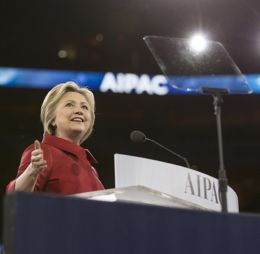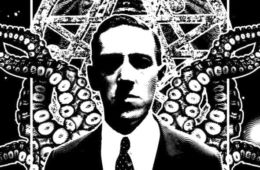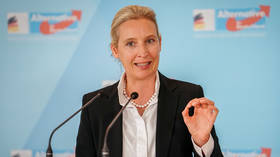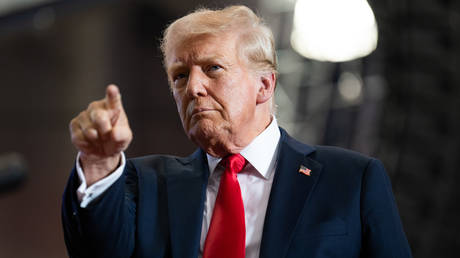Misrepresentative Government: Why Democracy Doesn’t Work, Part II
3,709 words
Part 2 of 4 (Part 1 here)
“The dollar votes more times than the man,” goes the century-old political proverb. Before voters enter the equation, political parties need donors to finance their campaign. This means that political parties will not necessarily adopt the preferences of voters, because “no party can afford to take up the median position that represents the views of the vast majority if investors disagree.” Even if the electorate has clear majoritarian policy preferences, political parties would be better off trying to “adjust the public to the parties’ views” than to adjust their policy to the electorate’s preferences and risk alienating their donors. This financial dependence means that political party organizations tend to become highly sensitive to pressure from their donors and encourages party leaders and organizers to work from the inside to enforce party discipline and ensure that the members conform to their donors’ preferences. Prior to elections, “candidates are carefully screened by [these] party elites and activists, who serve as gatekeepers and recruiters in identifying like-minded individuals to run for office.” This tends to force candidates to be responsive to “the preferences of [these] committed party activists because they provide the bulk of the campaign’s core votes, volunteers, and contributions to fund media advertising, consultants, and travel,” a process which tends to advantage “privileged private interests” over those of the general public.[1]
In the words of Schattschneider, the voter “is a sovereign whose vocabulary is limited to two words, ‘Yes’ and ‘No.’” And it is the political party organizations that ultimately control the binary selection of options that voters are allowed to vote “Yes” and “No” for in the first place. As William “Boss” Tweed, who was in charge of the corrupt Tammany Hall political machine in the late nineteenth century, once remarked: “I don’t care who does the electing, as long as I get to do the nominating.” Primary elections, which emerged in the early twentieth century, were meant to counteract this phenomenon by taking power away from party powerbrokers such as Tweed and giving more power and choice to voters. However, even with the direct primary, “the role of ordinary citizens in selecting nominees is and can only be highly indirect,” and party organizations nevertheless continue to exert significant influence over the nominating process from behind the scenes. This process, where “important elements of each major party — mainly elites and interest groups — [attempt] to anoint a presidential nominee before the voting even begins,” is called the “invisible primary.” It comprises “insider deliberations [that] take place in private conversations with each other and with the potential candidates,” notes Andrew Prokop, “and eventually in public declarations of who they’re choosing to endorse, donate to, or work for.” This process was on display in 2016 when the Democratic National Committee signed a confidential Joint Fund-Raising Agreement with Hillary Clinton, because Hillary’s campaign brought in the most funding and could pay off the organization’s debts. Consequently, “party officials tried to clear the field to coronate Clinton” prior to the primaries, which led to the perception that the primaries had been “rigged” in favor of Clinton and to the detriment of other potentially popular candidates, such as the progressive Bernie Sanders.[2]
Few citizens can afford to donate game-changing sums, so the political system tends to become dominated by those few who can. Kevin Phillips notes that “between 1980 and 2000, the dollars pouring into the presidential-year arena of federal elections roughly trebled; the cost of running for open House and Senate seats jumped by 500 percent.” This process was exacerbated by the Supreme Court’s Citizens United and McCutcheon v. FEC decisions, which ruled that restrictions on campaign contributions violate the Free Speech Clause of the First Amendment. In his opinion, Justice Anthony Kennedy rationalized the ruling:
A restriction on the amount of money a person can spend on political communication during a campaign necessarily reduces the quantity of expression by restricting the number of issues discussed, the depth of their exploration, and the size of the audience reached. . . . [A] substantial and legitimate reason . . . to make a contribution to one candidate over another is that the candidate will respond by producing those political outcomes the supporter favors. Democracy is premised on responsiveness . . .[3]
The Citizens United ruling effectively lifted all restrictions on private contributions and on buying political access, allowing extremely wealthy individuals to pour historically unprecedented sums of money into federal elections. In 2010 the largest individual contribution was $7.5 million. This number has since been dwarfed by the contributions of the casino mogul Sheldon Adelson, who contributed more than $122 million alone during the election cycle in 2018 and more than $218 million in 2020. Between 2010 and 2020, just 12 megadonors — Michael Bloomberg, Timothy Mellon, Richard Uihlein, Sheldon and Miriam Adelson, Joe Rickets, Donald Sussman, the media magnate Fred Eychaner, Facebook founder Dustin Moskovitz, and hedge fund managers Tom Steyer, Jim Simons, Ken Griffin, and Paul Singer — accounted for more than 7.5% of all federal election contributions in this period, having collectively contributed $3.4 billion out of the $45 billion spent on federal political causes. 20% of all of these political contributions came from fewer than 100 postal districts where the ultra-wealthy reside, representing areas which house significantly less than 0.1% of the entire country’s population. Operating largely behind the scenes in an unofficial capacity that is not subject to public scrutiny, millionaire donors have since given way to billionaire megadonors, which The Atlantic reports “are now more important than most politicians” combined. “[P]oliticians’ positions reflect the preferences of their donors to an uncanny extent,” observes Nicholas Stephanopoulos, and “donors’ abundant resources, policy extremism, and ideological giving contribute to severe misalignment in their favor.”[4]
Aside from lifting limits on campaign contributions, the rulings also led to the rise of Super PACs, i.e., political action committees that can receive unlimited contributions from private individuals and corporations. Super PACs cannot coordinate directly with candidates but are otherwise totally free to engage in independent electioneering activities and effectively run their own independent election campaigns for candidates. In a controversial incident in 2016, “a super PAC supporting Carly Fiorina essentially ran her campaign.” Shortly after the Citizens United ruling in 2010, the public relations firm Murray Hill joked in a press release on its website:
Until now . . . corporate interests had to rely on campaign contributions and influence peddling to achieve their goals in Washington. But thanks to an enlightened Supreme Court, now we can eliminate the middle-man and run for office ourselves.[5]
As Daniel Weiner remarks, “the [Supreme Court] decision has helped reinforce the growing sense that our democracy primarily serves the interests of the wealthy few, and that democratic participation for the vast majority of citizens is of relatively little value.” In 2016 alone, $6.3 billion was spent during the national election cycle, out of more than $6.9 billion given in private contributions. In 2020 this number doubled, with more than $14 billion being spent on both the Presidential and Congressional elections in what has been called the “the most expensive election in U.S. history.” Wall Street alone spent more than $2.9 billion during that federal election cycle.
These totals often fail to account for ‘early money’ given to political action committees and promised to candidates before an election cycle. Also called the “invisible primary,” these early contributions often determine whether a politician decides to run for election at all or drop out before the race starts. In 2016, journalists found that half of all these ‘early money’ contributions came from just 158 superrich families, the majority of which were connected to hedge funds and the finance industry and representing a “countervailing force” against “the way the actual voters of this country are evolving and the policies they want.” Many of these individuals also practice “stealth politics,” meaning that despite contributing hundreds of millions during elections, they do not publicly disclose their personal policy preferences. As Gilens observes, this practice “can weaken political accountability,” because it allows billionaires to “quietly use their money to promote ideas that are narrowly self-interested and in conflict with the views of most ordinary citizens” without coming under public scrutiny or criticism. These reportable contributions also “exclude anonymous ‘dark money’ contributions” laundered to election campaigns and political action committees through “trusts, limited liability corporations, and [politically active] nonreporting ‘social welfare’ organizations” that are not obligated to disclose the identities of their donors. Investigations of past elections have revealed that billions of dollars distributed in this manner have gone towards influencing elections in recent years.[6]
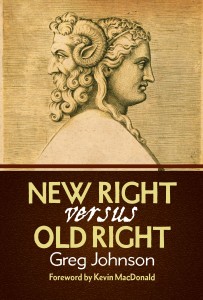
You can buy Greg Johnson’s New Right vs. Old Right here
As Chris Hedges writes, “money has effectively replaced the vote.” Politics is a profession “where you have to spend half your time raising money,” explains political scientist Lawrence Lessig, and this “means there’s this small number of people on whom [politicians are] dependent and . . . have a huge influence.” Elections are becoming increasingly expensive, and it goes without saying that this gives wealthy donors and interest groups enormous leverage over the political system. As Gilens remarks, “a few million dollars — pocket change to a hedge fund manager — can mean life or death to the career of an aspiring politician.” When politicians audition during the early stages of their campaign, they are auditioning to this donor class first, and to voters second.
Underscoring in no uncertain terms the degree to which politicians are dependent on their donor-class sponsors, the politician Rudy Giuliani — who once remarked that it is okay to lie to voters — has been photographed kneeling and kissing mega-donor Miriam Adelson’s ring at lavish fundraising banquets. Politicians who are worried about reelection often feel that they cannot afford to fight for the objectives of their constituents when they conflict with powerful special interest groups. Politicians need financial support to win elections, and this situates wealthy special interests in a position to punish uncooperative politicians by drastically limiting both their public and private career prospects. This has caused various pundits to remark over the years that it is only outgoing ‘lame duck’ politicians who are able to freely act in the public interest and in the interests of their constituents, because they are not concerned about reelection and, by extension, are theoretically not subject to the influence of donors. In practice, our system seems to be a comical inversion of the “folk theory of democracy,” because it appears that elected officials are not capable of being responsive to the preferences of their constituents because of elections, but only in spite of elections.[7]
For example, in 2020 hundreds of major donors threatened 147 lawmakers that they would stop contributing to their campaigns after expressing hesitancy about certifying Joe Biden’s election victory. Missouri Senator Josh Hawley lost a major book deal and was harshly chastised by one of his major donors, David Humphreys, who promised to pull funding from Hawley’s future campaigns. After the incident, Christian Morgan stated that the treatment was “unfair,” as “there are a lot of people in Missouri that honestly feel like the election was stolen and they see Sen. Hawley as standing up for them.” However, Hawley’s donors felt differently, and used their financial influence to force lawmakers to fall in line.[8]
Another example is the Israel lobby, represented by powerful lobbying organizations such as the American Israel Public Affairs Committee (AIPAC) and the billionaire megadonors Sheldon Adelson and media mogul Haim Saban, who once famously stated, “I’m a one-issue guy, and my issue is Israel.” According to the journalist J. J. Goldberg,
the most notorious use of [pro-Israel] campaign money is not to support candidates who have been friendly, but to oppose those who have been unfriendly. On several occasions in recent years, pro-Israel activists have mobilized from around the country to defeat a lawmaker who crossed some line regarding Israel.[9]
Such politicians include Rep. Charles H. Percy, Rep. Paul Findley, Rep. Cynthia McKinney, and even President George H. W. Bush, whose “defeat in 1992” is believed by many, including Bush himself, to have been “the result of Jewish-American opposition fueled by his hard line against Israeli settlements.” “Speaking on condition of anonymity,” one senator remarked to a journalist:
My colleagues think AIPAC is a very, very powerful organization that is ruthless, and very, very alert. Eighty percent of the senators here roll their eyes on some of the votes. They know that what they’re doing isn’t what they really believe is right, but why fight on a situation where they’re liable to get beat up on?

You can buy Dark Right: Batman Viewed from the Right here
Commenting on “AIPAC’s ability to twist arms,” George H. W. Bush’s Secretary of State Lawrence Eagleburger once told an AIPAC lobbyist: “I deal with you because you could hurt me.” Former President Jimmy Carter once remarked: “It’s almost politically suicidal . . . for a member of the Congress who wants to seek reelection to take any stand that might be interpreted as anti-policy of the conservative Israeli government.”[10]
During the 2020 election, Congresswoman Alexandria Ocasio-Cortez — who has made mildly critical statements about Israel — commented on how various powerful financial entities were pouring millions of dollars into the primary campaign of her rival Michelle Caruso-Cabrera, who Cortez believed had been deliberately selected to eject her from her seat: “They weaponized all the cynical powers of trying to get someone of my ethnicity, trying to even confuse people in terms of the name — Caruso-Cabrera versus Ocasio-Cortez.” Cortez’s seat became the second-most expensive seat in the entire country, as millions of dollars also poured into the campaign of her Republican opponent, John Cummings, a totally unknown high school teacher who somehow managed to raise more money than the Congresswoman herself. Republican strategist Tom Doherty remarked, “I don’t know anything about him except that he’s running against A.O.C. The people that are interested in that race financially are giving because it’s A.O.C.”[11]
In 2021, Cortez promised her constituents that she would vote against American aid to Israel, but in a vote to approve $1 billion in funding for Israel’s Iron Dome, Cortez broke down crying on the floor and changed her vote from “no” to “present.” As MSNBC explains, Cortez withheld her vote because
she may be increasingly cognizant of the pro-Israel constituencies and lobbying power she’ll be up against should she actually pursue that run. If she ever runs for a position like governor or president, her track record on Israel will be closely scrutinized and could be used as a wedge issue against her.
In 2022, AIPAC poured tens of millions into the 2022 midterms to unseat nine safe-seat Democrat incumbents, including the Palestinian Democrat Rep. Rashida Tlaib and Rep. Andy Levin, who stated, “AIPAC’s completely gone off the rails and they’re trying to end my career because I won’t fall in line with their view of what it means to be pro-Israel.”[12]
Politicians walk on eggshells and are forced to be highly alert to the preferences of wealthy special interest groups because crossing them can spell disaster for their political careers. Whereas being oppositional engenders incredible risks and resistance, however, being cooperative with wealthy special interests can open doors and opportunities that can be enormously profitable for career politicians.
Politicians, lobbyists, and political consultants are all subject to a harsh “quid pro quo” selection process throughout their careers in which they are constantly “trained to view human interaction through the prism of ‘How can this person be helpful to me?’” There are plenty of opportunities for naturally symbiotic and mutually beneficial business relationships between politicians, lobbyists, consultants, and business elites. Politicians need wealthy associates such as corporate executives and hedge fund managers to supply them with campaign donations, and these business executives need friendly politicians to pass business-friendly policy in office. Consequently, an entire consulting and “influence industry” that specializes exclusively in networking and connecting politicians to wealthy benefactors and special interests has sprung up inside the beltway. As the political consultant and “fixer” (i.e., a consultant who specializes in creating these connections and mutually beneficial arrangements) Carter Eskew once stated, “the right connection [will] fix things.”[13]
According to the political scientist Thomas R. Dye, many former politicians and staffers put their expertise and connections to work in this lobbying and consulting industry after their political careers, working in the business of “opening doors” by connecting moneybag plutocrats of the donor class to aspiring young politicians:
Washington law firms, public relations agencies, and “consultants” all offer their insider connections along with their advice to their clients. Indeed, most of the top fixers are former government officials — former Congress members, Cabinet secretaries, White House aides, and the like — who “know their way around.” The personal prestige and background of the fixer help to open doors.[14]
As Gilens explains, “politicians need money to run their campaigns, and interest groups need politicians to advance their interests, which leads to long-term, mutually beneficial relationships.” Lobbyists and political consultants address this need by connecting senatorial or presidential hopefuls to networks of donors and media executives, who in turn assess personalities and determine who they see as ‘reliable’ and wish to endorse as candidates before they even make it to the primaries. On the other hand, these relationships also offer politicians many additional private perks and advantages beyond simply securing the funding necessary to run political campaigns and have successful political careers. Politicians can also use these connections to monetize their time in office and ingratiate themselves with a billionaire business class that can make them privately wealthy beyond their wildest dreams.[15]
A recent investigation found that in 2012, money had been “funneled . . . to [the] family members, friends, and business associates” of more than 248 members of Congress “through their congressional offices, campaign committees, and political action committees” via disbursements and grossly inflated salaries. Leadership PACs do not only campaign for candidates, but they also cater to politicians and their family members through a practice called “perk and pocket” by providing “lifestyle subsidies” that allow them to live like millionaires, such as by providing services and hosting lavish, all-expenses-paid vacations, retreats, and fundraising parties reimbursed as “campaign expenses.” Campaign committees give politicians the opportunity to spend hundreds of days a year indulging and schmoozing at ‘fundraising’ junkets hosted at fancy resorts and banquet halls, often little more than excuses to enjoy expensive golf vacations at the public expense. George Bush recalls Senator Saxby Chambliss pulling him aside at a fundraising event in 2003 to whisper, “If you keep it short, we can get in a round of golf.” However, as Formisano notes, “the real payoffs for the people’s servants . . . typically come after they leave office.”[16]
* * *
Like all journals of dissident ideas, Counter-Currents depends on the support of readers like you. Help us compete with the censors of the Left and the violent accelerationists of the Right with a donation today. (The easiest way to help is with an e-check donation. All you need is your checkbook.)
For other ways to donate, click here.
Notes
[1] Michael Parenti, Democracy for the Few, Ninth Edition (Wadsworth, Cengage Learning: 2011), 199. Ferguson, 382, 36. Jacobs and Shapiro, 17, 40.
[2] Quoted in Achen, 28. Achen, 60. Andrew Prokop, “The invisible primary: Can party elites pick a nominee before anyone votes?” (Vox: 2014). Ezra Klein, “Was the Democratic primary rigged?” (Vox: 2017). See also Marty Cohen, The Party Decides: Presidential Nominations Before and After Reform (University of Chicago Press: 2009). Timothy B. Lee, “The DNC just apologized for bashing Bernie Sanders in private emails” (Vox: 2016).
https://www.bbc.com/news/world-us-canada-41850798
https://www.politico.com/magazine/story/2017/11/02/clinton-brazile-hacks-2016-215774/
[3] Kevin Phillips, American Dynasty: Aristocracy, Fortune, and the Politics of Deceit in the House of Bush (Penguin Publishing Group: 2004), 69-71. Quoted in Schlozman, 549.
[4] Soo Rin Kim, “Just 12 megadonors accounted for 7.5% of political giving over past decade, says report” (ABCNews: 2021). John Q. Publius, “Hedging their Bets (Who Really Decides Elections)” (The Occidental Observer: 2020). Peter Beinart, “Mega-Donors Are Now More Important Than Most Politicians” (The Atlantic: 2014). Lessig, 59. Nicholas O. Stephanopoulos, “Aligning Campaign Finance Law” (Virginia Law Review 101, no. 5: 2015). See also Timothy K. Kuhner and Eugene D. Mazo, Democracy by the People: Reforming Campaign Finance in America (Cambridge University Press: 2018).
[5] Richard L. Hasen, “The Decade of Citizens United” (Slate: 2019). Quoted in Nick Wing, “Murray Hill PR Firm Plans (Satirical) Run For Maryland Congressional Seat” (HuffPost: 2010). See also Tim Lau, “Citizens United Explained” (Brennan Center for Justice: 2019).
[6] Quoted in Lau. Karl Evers-Hillstrom, “Most expensive ever: 2020 election cost $14.4 billion” (Open Secrets: 2021). Brian Schwartz, “Wall Street execs, employees spent $2.9 billion on campaigns, lobbying during 2020 election, study shows” (CNBC: 2021). Quoted in Gilens and Page, Democracy in America?, 105, 94-95, 104, 107-108. See also Eric Lichtblau, “From Fracking to Finance, a Torrent of Campaign Cash” (The New York Times: 2015). Nicholas Confessore, “The Families Funding the 2016 Presidential Election” (The New York Times: 2015).
[7] Chris Hedges, “Introduction to the 2017 Edition” of Sheldon S. Wolin, Democracy Incorporated: Managed Democracy and the Specter of Inverted Totalitarianism — New Edition (Princeton University Press: 2017), xxix. Lessig quoted in Maggie Koerth, “Everyone Knows Money Influences Politics … Except Scientists” (FiveThirtyEight: 2019). Gilens and Page, Democracy in America?, 32. Amber Phillips, “Watch Rudy Giuliani kiss the hand of a top GOP donor, Miriam Adelson” (The Washington Post: 2016). Sinéad Baker, “Newly published 2018 transcript shows Rudy Giuliani telling DOJ agents it was OK to lie in campaigns: ‘Oh, you could throw a fake’” (Business Insider: 2021).
[8] Lindsay Wise, “Hawley Faces Fierce Backlash From Colleagues, Donors After Capitol Riot” (The Wall Street Journal: 2021).
[9] Quoted in Zaid Jilani, “Hillary Clinton Wasn’t Always This One-Sided on Israel” (The Intercept: 2016). J. J. Goldberg, “Jewish Power: Inside The American Jewish Establishment” (Basic Books: 1996), 269.
[10] Philip Weiss, “Did the First President Bush Lose His Job to the Israel Lobby?” (Mondoweiss: 2006). Quoted in Lloyd Grove, “On the March for Israel” (The Washington Post: 1991). Quoted in John J. Mearsheimer and Stephen M. Walt, The Israel Lobby and US Foreign Policy (Penguin Books Limited: 2008), 160.
[11] Quoted in Chris Sommerfeldt, “‘Cynical, disgusting’: AOC says her 2020 primary challenger was picked because she’s also Latina” (New York Daily News: 2021). Jeffery C. Mays, “If A.O.C. Is So Heavily Favored, Why Has Her Race Drawn $30 Million?” (The New York Times: 2016).
[12] Adela Suliman, “Alexandria Ocasio-Cortez apologizes after tearful ‘present’ vote on Israel Iron Dome funding bill” (The Washington Post: 2021). Zeeshan Aleem, “AOC’s Iron Dome vote left her crying — and it backfired” (MSNBC: 2021). Emily Crane, “AOC dragged for ‘bad theater’ after crying over Iron Dome vote” (The New York Post: 2021). Philissa Cramer, “AIPAC investing in primary that could end Jewish Democratic dynasty” (The Jerusalem Post: 2022). Mitchell Plitnick, “AIPAC’s new tactic to unseat Rashida Tlaib” (Mondoweiss: 2022). Chris McGreal, “Pro-Israel group pours millions into primary to defeat Jewish candidate” (The Guardian: 2022). Elena Schneider, “Battles over Israel divide Democratic primaries” (Politico: 2022).
[13] Mark Leibovich, quoted in “An excerpt from Mark Leibovich’s ‘This Town’” (NBCNews: 2013). Eskew quoted in Shapiro and Jacobs, 47.
[14] Thomas R. Dye, Who’s Running America?: The Clinton Years (Prentice Hall: 1995), 133.
[15] Gilens and Page, Democracy in America?, 144.
[16] Formisano, 51, 39, 41, 47. Quoted in Formisano, 52. See also Peter Schweizer, Secret Empires: How the American Political Class Hides Corruption and Enriches Family and Friends (HarperCollins: 2019). Thom Hartmann, The Hidden History of American Oligarchy: Reclaiming Our Democracy from the Ruling Class (Berrett-Koehler Publishers: 2021).

